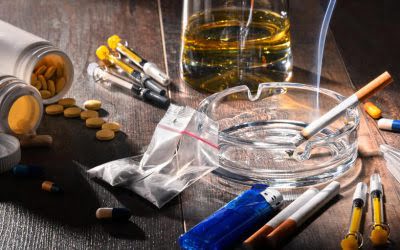Why Can’t I Stop Drinking Once I Start? 4 Major Reasons
This, first of all, helps you catch the thought, instead of simply letting it operate without your conscious awareness. In the following article I would like to share 8 impactful strategies to reduce or stop your drinking that you can start implementing today. From after-work drinks to weekend brunches, https://profildoktergigi.com/eco-friendly-home-tips-the-top-25-ways-to-be-more/ alcohol is often the glue of social life. The Australian Institute of Health and Welfare reports that over 75% of adults drink socially, making it harder to step back without feeling excluded. Whether you’re single, married, thriving, or struggling—alcohol has a way of weaving itself into life. What starts as “just one drink to relax” can spiral into a cycle of dependence that feels impossible to break.
If you’re struggling to control your drinking after just one drink, Anchored Tides Recovery is here to help. Take the first step towards a brighter future by reaching out to our compassionate team. Blackouts, which involve memory loss during periods of heavy drinking, are another common short-term risk. A 2012 study found that among college students who drank alcohol, 51% reported experiencing at least one blackout in the past year. Moreover, environmental triggers, such as passing by a favorite bar or attending a party where alcohol is served, can elicit strong cravings and make it harder to maintain mindful drinking practices. If you find that you’re unable to enjoy social situations without consuming drug addiction alcohol, it may be a sign that your relationship with drinking has become unhealthy.
How to Determine If You Need Additional Support
- As part of my commitment to change, I identified alcohol as the main problem and control it.
- Achieving this self-control can be tricky, however—especially when it comes to alcohol.
- Danny ensures he has as many techniques as possible to help people improve their well-being and achieve their goals.
- However, when alcohol makes up part of your typical routine, drinking can become something of an automatic response, especially when you feel stressed or overwhelmed.
- But according to the National Institute on Alcohol Abuse and Alcoholism (NIAAA), this relief is short-lived—stress and anxiety actually rebound stronger once alcohol wears off.
You can learn more about this effect and how to manage it here. It’s always wise to check with your doctor — she should be able to help you decide whether it is best for you to cut back or to abstain. People who are dependent on alcohol, or have other medical or mental health problems, should stop drinking completely. Alcohol addiction is characterized by the compulsive urge to drink despite negative consequences.
- These are some of the most common signs of alcohol misuse or inappropriate use.
- Design for Change is a trusted, full-service addiction recovery center located in Lancaster, California.
- If feelings of shame or guilt persist even when practicing mindful drinking, it may be a sign that additional support or a different approach to managing your drinking is necessary.
- This phenomenon is known as the Alcohol Deprivation Effect, where the brain’s response to the absence of alcohol can trigger stronger urges to drink.
- This reduces cravings for alcohol when used consistently (i.e., each and every time the person drinks).
a break from alcohol can bring?
Whilst under the effects of binge drinking you become very vulnerable. In the event of being attacked, you will be less able to defend yourself or take appropriate action. Binge drinking causes a number of physical and psychological effects, brought about by how alcohol affects the brain. The more a person drinks and over a shorter time frame, the more they lose control over their composure, behaviour and perspective.
My alternative thought might therefore be “Even though no one would notice if I had a drink, I would notice and I wouldn’t like myself”. The feeling or outcome of this thought might now change from excitement to disappointment, but perhaps also pride for sticking to my principles and acting based on long-term benefit rather than short-term gain. “Everyone drinks,” “I’m not that bad,” or “At least I don’t drink why cant i control my drinking in the mornings.” But subtle health impacts—poor sleep, mood swings, brain fog—are early red flags. Once you’ve cut back on your drinking (so you’re at or below the recommended guidelines), examine your drinking habits regularly to see if you’re maintaining this level of drinking. Some people attain their goal only to find that old habits crop up again later. Specializing in Compulsive Hoarding and Behavior Addictions, Brionna guides clients towards healthier relationships and boundaries.
Alcoholism and Brain Damage

The concept of “controlled drinking” can create a false sense of security, leading people to believe they can handle more alcohol than they actually can. Self-reflection and intention setting are great tools to identify your path forward if you want to stop binge drinking and moderate your alcohol consumption or get sober. For many people, peer support and outside accountability are key tools in their treatment toolkit. Communicate your intentions and goals to those with whom you surround yourself with the most. Here are tips for telling your friends and family you’re getting treatment to change your drinking. This failure to gain control over one’s own alcohol intake can be dispiriting.
Building a strong sober support network
If you’re serious about cutting back on your alcohol consumption, the first step is to set concrete goals around how much you plan on letting yourself drink in a given day or week. When you quit drinking alcohol, there isn’t any way around feeling like you’re missing something. It’s hard to quit drinking when you only see yourself as a person who normally drinks but is taking a break. Whether your goal is long-term or short-term sobriety, this is the wrong mindset.
Beer has lower ethanol content, and the carbonation can fill you up, so it tends to take longer to drink. Switching from alcohol to nonalcoholic drinks and back can slow you down as well. Holding a drink with lime or lemon may deter others from thinking you are not drinking an alcoholic mixed drink, and they may be less likely to offer you another drink.
The Centres for Disease Control and Prevention (CDC) reported in 2010 that excessive drinking cost the economy $249 billion. Many people like to have a beer or a glass of wine at the end of a stressful day, in order to help unwind. Regular alcohol consumption is relatively high, with the 2019 NSDUH showing that almost 55% of American adults drank alcohol in the past month. Jeanette Hu, AMFT, is a decade-long daily drinker turned psychotherapist and the creator of the Empowered Alcohol-Free 4-Pillar System. She helps high-achieving individuals break old drinking patterns and create a fulfilling and empowered alcohol-free life. After all, many people developed their beliefs about alcohol from a very young age.


Excessive drinking has numerous impacts on your body and mind, ranging from mild to severe. Learn which signs to look out for, and how to care for your well-being. Over time, your bladder muscle loses its ability to hold urine as well as it used to. This can make you feel like you have to pee before your bladder is full.
This is part of our ongoing commitment to ensure FHE Health is trusted as a leader in mental health and addiction care. Likewise, recovering alcoholics should never think they can safely drink after a successful few months or years of abstaining from alcohol. Social drinkers are not alcoholics or high-functioning alcoholics. They do not experience adverse physical, psychological or emotional symptoms when they do not drink. High-functioning alcoholics are experts at leading a double life. They work hard to ensure they appear normal and successful to their family, friends and coworkers.
